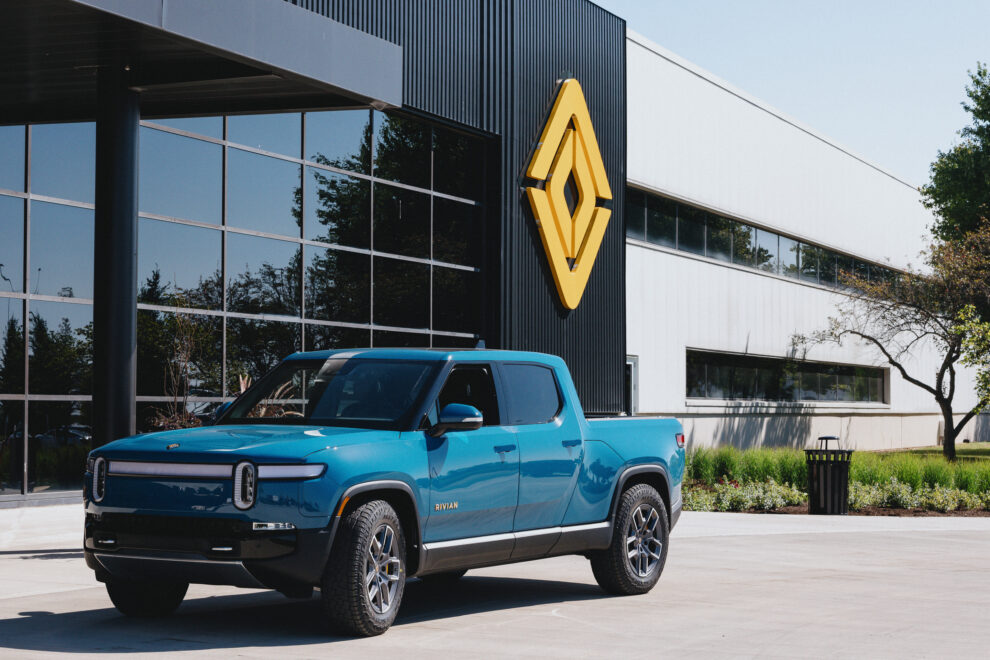Rivian’s stock could head a lot higher over the next few years.
The once-hot electric vehicle (EV) market fizzled out over the past two years as many automakers grappled with rising interest rates, higher production costs, supply chain constraints, and a persistent price war in China. As the market cooled off, many investors rotated away from EV stocks and other speculative investments.
But for contrarian investors, that steep sell-off might represent a good buying opportunity. I believe one of those turnaround plays could be Rivian Automotive (RIVN -1.83%) — which still trades at nearly 80% below its IPO price. Let me explain why this out-of-favor EV maker could be a great place to park $1,000 right now.

Image source: Rivian.
Why did Rivian’s stock drop below its IPO price?
When Rivian went public in November 2021, it attracted a stampede of bulls. It was already producing thousands of vehicles, it was backed by Amazon and Ford Motor Company, and it was set on producing 50,000 vehicles in 2022. It also seemed well-positioned to carve out a niche with its electric pickups and SUVs.
But Rivian eventually cut that forecast and only produced 24,337 vehicles in 2022 as it grappled with supply chain constraints. Ford then liquidated most of its stake in Rivian and ditched its plans for co-developing an electric pickup.
Amazon, which placed a long-term order for 100,000 custom electric delivery vans (EDVs) from Rivian, didn’t sell its stake. But in 2023, Amazon started buying EDVs from Stellantis and allowed Rivian to sell EDVs to other companies. Those moves suggested that Amazon was losing faith in Rivian’s ability to scale up its business.
In 2023, Rivian more than doubled its production to 57,232 vehicles as it finally overcame its supply chain issues and installed its in-house Enduro drive unit in more vehicles. But in 2024, it expects its production to nearly flatline at 57,000 vehicles as it deals with fierce macro headwinds, tough competition, and a multi-week shutdown of its main plant in Illinois.
That disappointing announcement, along with its persistent losses and high debt, made Rivian a tough stock to buy. For 2024, analysts expect its revenue to rise 8% to $4.8 billion as it slightly narrows its net loss from $5.4 billion to $4.7 billion.
Why could Rivian’s stock soar over the next few years?
Rivian clearly faces some tough near-term headwinds, but it recently attracted an investment of up to $5 billion from Volkswagen (VWAP.Y -0.36%) to launch a new joint venture to share their EV architecture and software. That announcement drove Rivian’s stock up 50% during after-hours trading on June 25.
Rivian CEO RJ Scaringe said the JV would secure its “capital needs for substantial growth” as it gears up for the launch of its smaller and cheaper R2 SUVs in 2026. Rivian ended the first quarter of 2024 with $9.05 billion in total liquidity, but Volkswagen’s new investment — which allays some concerns about Ford’s previous exit — will further increase its cash reserves and buy it more time to break even.
Rivian believes it can achieve a positive gross margin per vehicle by the fourth quarter of 2024 as it cuts costs and ramps up the production of its Enduro drive unit. It also plans to launch its sportier R3 and R3X SUVs in late 2026 to early 2027, and it will continue to fulfill Amazon’s EDV orders through 2030 as it tries to sell its EDVs to other companies.
Analysts expect that expansion to boost Rivian’s revenue to $11.5 billion in 2026 — which would represent a compound annual growth rate (CAGR) of 37% from 2023. They also expect it to narrow its net loss to $2.9 billion by the final year.
Rivian’s latest rally boosted its enterprise value to about $16 billion, but it still looks surprisingly cheap at 3 times this year’s sales. In comparison, Tesla trades at 6 times this year’s sales. Rivian’s insiders also bought more than eight times as many shares as they sold over the past 12 months.
All these factors could limit Rivian’s downside and drive its stock much higher. So if you’re willing to invest $1,000 in this notoriously volatile EV stock, you could reap some big profits as it scales up its business over the next few years.
John Mackey, former CEO of Whole Foods Market, an Amazon subsidiary, is a member of The Motley Fool’s board of directors. Leo Sun has positions in Amazon. The Motley Fool has positions in and recommends Amazon, Tesla, and Volkswagen Ag. The Motley Fool recommends Stellantis. The Motley Fool has a disclosure policy.












